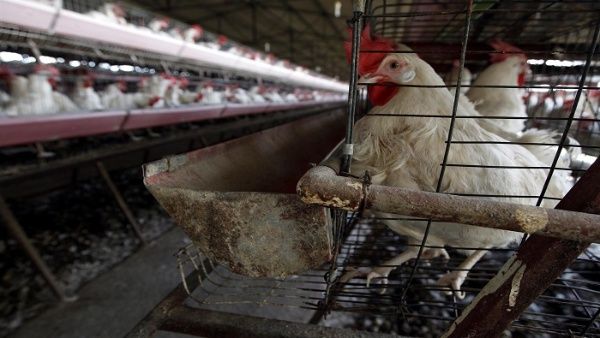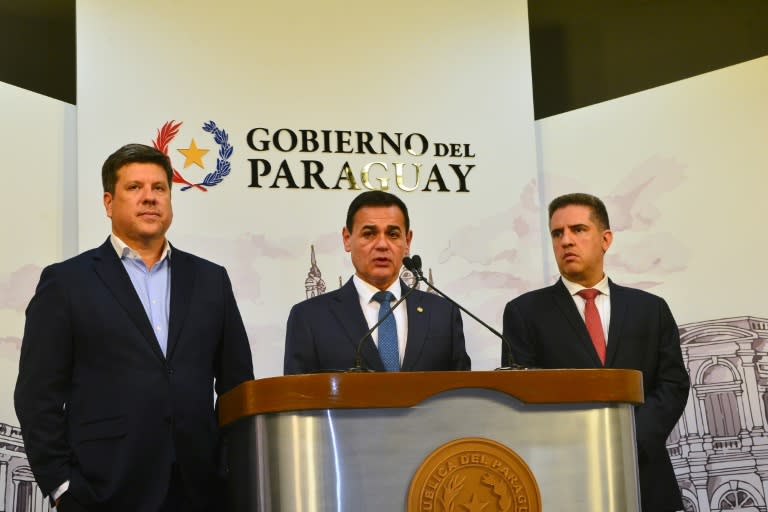International
Mexico suspends quarantine due to avian flu cases in Sonora

November 26 |
The Mexican authorities of the Ministry of Agriculture and Rural Development (Sader) lifted on Friday the zoonotic quarantine implemented last October due to the presence of high levels of pathogenicity of the AH5 avian influenza virus in the state of Sonora, after verifying the absence of the disease.
The agency said in a statement released to that effect that the moratorium on the breeding and marketing of poultry products was lifted “after verifying that in the last 25 days there have been no more cases of highly pathogenic avian influenza (flu) AH5N1 in the state”.
After completing the quarantine, Sader began an emergency vaccination process in strategic areas, the first stage of which is expected to cover areas of high animal health risk and farms where there are parent hens, for which it has a supply of 36.1 million doses.
In order to compare the genome of the current virus with that of 2022 and verify the effectiveness of the drug used against it, scientists from Senasica’s Mexico-United States Commission for the Prevention of Foot and Mouth Disease and other Exotic Animal Diseases (CPA) carried out the primary isolation of the AH5N1 virus.
Sader explained that the outbreak in Sonora involved two production farms, for which they were forced to cull 144,000 birds at the end of their production cycle “which represented less than 0.1 percent of the national flock” without affecting the commercial supply of chicken and eggs in the country.
The avian influenza virus, as with the virus that affects humans, is one of the pathogens with the greatest capacity for genetic changes, which means that year after year, when the migration season of wild birds from the north of the continent arrives, the type and subtypes of the virus present must be characterized.
On October 27, the Servicio Nacional de Sanidad, Inocuidad y Calidad Agroalimentaria (Senasica) declared a quarantine in several poultry farms in the state of Sonora after detecting the virus in two of them. In addition, traces of the pathogen were found in wild birds in Jalisco, Veracruz and Baja California.
International
Paraguay summons Brazilian ambassador over Itaipú espionage scandal

Paraguay summoned the Brazilian ambassador in Asunción on Tuesday to demand “explanations” and called its own representative in Brasília for consultations following Brazil’s acknowledgment of an espionage operation. The Brazilian government, led by President Luiz Inácio Lula da Silva, attributed the operation to the previous administration.
The surveillance effort aimed to uncover Paraguay’s position in now-suspended negotiations with Brazil regarding the pricing of electricity from the binational Itaipú hydroelectric plant, according to reports in the Brazilian press.
The Brazilian government “categorically denied any involvement in the intelligence operation,” stating in a Foreign Ministry communiqué on Monday that the espionage was carried out under former President Jair Bolsonaro’s administration (2019-2023).
“The operation was authorized by the previous government in June 2022 and was annulled by the interim director of the (state intelligence agency) ABIN on March 27, 2023, as soon as the current administration became aware of it,” Brazil’s government asserted.
Paraguay’s Foreign Minister Rubén Ramírez announced that Brazilian Ambassador José Antonio Marcondes de Carvalho was summoned “to provide detailed explanations” regarding the operation. Additionally, Paraguay recalled its diplomatic representative in Brasília “to report on aspects related to the intelligence activity conducted by Brazil regarding Paraguay’s government affairs.”
International
Elon Musk to step down as government advisor, per Trump insiders

President Donald Trump has informed his inner circle that Elon Musk will be stepping down from his role as a government advisor, according to a report by Politico today.
Citing three individuals close to Trump, Politico states that the president is pleased with Musk’s leadership at the Department of Government Efficiency (DOGE), where he has implemented significant budget cuts. However, both have agreed that it is time for Musk to return to his businesses and support Trump from a different position outside the government.
A senior administration official told Politico that Musk will likely maintain an informal advisory role and continue to be an occasional visitor to the White House. Another source warned that anyone thinking Musk will completely disappear from Trump’s circle is “deluding themselves.”
According to the sources, this transition is expected to coincide with the end of Musk’s tenure as a “special government employee,” a temporary status that exempts him from certain ethics and conflict-of-interest regulations. This 130-day period is set to expire in late May or early June.
International
Milei vows to make Argentina so strong that Falkland Islanders “choose” to join

Argentine President Javier Milei reaffirmed his country’s claim over the Falkland Islands (known as the Islas Malvinas in Argentina) and praised the role of the nation’s armed forces during a ceremony marking the “Veterans and Fallen Soldiers of the Malvinas War Day,” commemorating 43 years since the 1982 conflict with the United Kingdom.
Argentina continues to assert sovereignty over the islands, arguing that Britain unlawfully seized them in 1833.
“If sovereignty over the Malvinas is the issue, we have always made it clear that the most important vote is the one cast with one’s feet. We hope that one day, the Malvinas residents will choose to vote with their feet and join us,” Milei stated.
“That is why we aim to become a global power—so much so that they would prefer to be Argentine, making deterrence or persuasion unnecessary. This is why we have embarked on a path of liberation, working to make Argentina the freest country in the world and once again the nation with the highest GDP per capita on the planet,” he added.
-

 International5 days ago
International5 days agoSon of journalist José Rubén Zamora condemns father’s return to prison as “illegal”
-

 Central America3 days ago
Central America3 days agoU.S. Homeland Security Secretary urges Mexico to strengthen Guatemala border
-

 Central America4 days ago
Central America4 days agoPanama police clarifies that Interpol alert for Martinelli is still pending
-

 International5 days ago
International5 days agoMiyazaki’s style goes viral with AI but at what cost?
-

 International3 days ago
International3 days agoTrump urges Putin to reach peace deal
-

 Central America3 days ago
Central America3 days agoPanama grants Martinelli 72-hour extension to travel to Nicaragua
-

 International24 hours ago
International24 hours agoParaguay summons Brazilian ambassador over Itaipú espionage scandal
-

 International4 days ago
International4 days agoDeportation flight lands in Venezuela; government denies criminal gang links
-

 Sports1 day ago
Sports1 day agoFilipe Luis debuts as coach in Copa Libertadores with Flamengo
-

 Central America21 hours ago
Central America21 hours agoGuatemalan police officer killed in mob riots over baby kidnapping
-

 International24 hours ago
International24 hours agoElon Musk to step down as government advisor, per Trump insiders
-

 International1 day ago
International1 day agoICE agent’s arrest of suspect sparks controversy in Boston
-

 International24 hours ago
International24 hours agoMilei vows to make Argentina so strong that Falkland Islanders “choose” to join
-

 Sports24 hours ago
Sports24 hours agoVenezuela investigates 18 baseball players seeking asylum in Spain
-

 International1 day ago
International1 day agoÓscar Arias: Trump’s trade policies are a step backward















